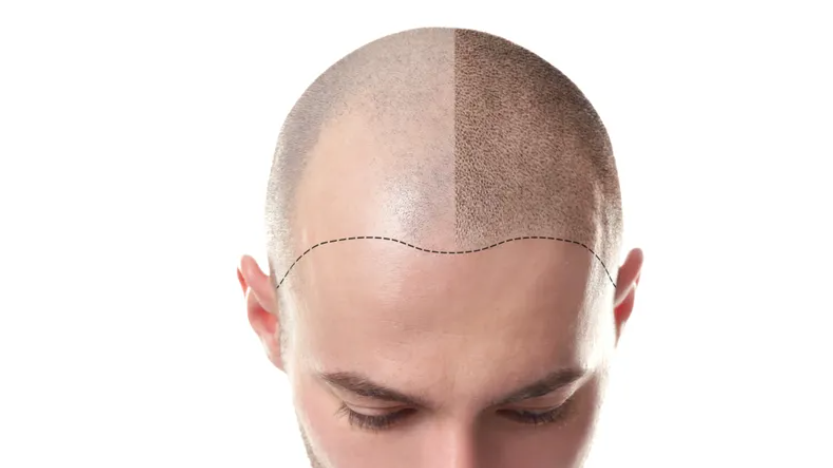Your Own Hair
Starting with the pros, let’s lead off with a major upside: hair transplants can provide someone with hair loss or thinning hair with a full mane. The transplanted hair is taken from the patient’s own scalp and matched to their existing hair, resulting in a seamless and natural-looking hairline.
Knowing that the hair transplant is from your own DNA can help the entire procedure feel less alien and more authentic. Plus, the results can provide a significant boost in self-confidence, affecting your personal and professional life.
It’s Permanent
Unlike other hair loss treatments that require ongoing maintenance or replacement, hair transplants are a permanent solution. 1 Once the transplanted hair has grown in, it will remain in place and can be treated like natural hair.
As an added bonus, there’s a chance your hair will turn gray at a slower rate. While the timing of graying depends on individual genetics, the transplanted hair may not turn gray at the same rate as natural hair. This is because hair follicles used for the transplant are taken from an area of the scalp that is typically less affected by graying.
No Ongoing Maintenance
Transplanted hair requires no special maintenance or care, and can be washed and styled just like natural hair. Plus, it grows and can be trimmed like any other hair! This makes it a convenient and easy option – especially when compared with other hair loss treatments.
For example, there are topical solutions and oral medications that can help promote hair growth or block the hormone production that causes baldness. However, these products must be used consistently and may take several months before you see any results. If you were to then stop using these products, your hair loss would return.
It’s Expensive
Let’s dive into the cons column with a significant one: Hair transplant surgery can be expensive. While the cost depends largely on the extent of the procedure, hair transplants cost about $10,000 on average. 2
Since the procedure is usually a cosmetic one, most insurance companies will not cover them. So, for some people, the price may be too prohibitive.
Recovery Takes Time
Recovery from a hair transplant can take several days to several weeks. One clinic reports that it can take upwards of 14 days for the swelling and scabbing to subside from a transplanted scalp. 3
During this time, the patient may experience discomfort and bruising. They may also need to take time off work or other activities to allow for proper healing. Extended time off could wind up being an added expense.
Complications Can Happen
As with any surgical procedure, there is a risk of complications with hair transplant surgery. These can include bleeding, infection, scarring, and an uneven or unnatural-looking hairline.
While complications are rare, they can occur, and you may wind up with a permanent look you didn’t expect! Some patients report feeling unsatisfied with the results of their transplant. 4 For those reasons, you should be aware of the risks before undergoing the procedure.
They Don’t Always Work
After discussing the expense and pain of this procedure, you might be disappointed to learn that hair transplants don’t work for everyone. For example, anyone with significant scarring on their scalps will probably not be eligible for a hair transplant.
These procedures work best when there is a sufficient amount of donor hair available for transplantation. For people with extensive hair loss, there may not be enough donor hair available to achieve the desired results. 5
Medical conditions or medications may also interfere with the success of a hair transplant. For example, patients with autoimmune disorders, blood clotting disorders, or uncontrolled diabetes may not be good candidates for the procedure.
Consult With Your Doctor
Hair transplants can provide a permanent solution for those with hair loss or thinning hair. The procedure is usually low maintenance and transplanted hair can be treated like natural hair. However, the costs, recovery time, and risk of complications are important factors to keep in mind.
The best path forward involves a consultation with a qualified medical professional to determine if a hair transplant is the right choice for you. With careful consideration of the pros and cons, you can decide the best way to remedy your hair loss.
